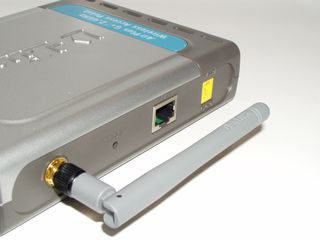BBC Wi-Fi risk claim branded 'unscientific'
Discrepancies in comparison data criticised by experts

A BBC investigation designed to highlight the risks of Wi-Fi networks has been heavily criticised and branded "grossly unscientific" by experts. Tonight's Panorama "shows that radio frequency radiation levels in some schools are up to three times the level found in the main beam of intensity from mobile phone masts," according to the BBC.
That's the programme's central claim. But it has been rejected wholeheartedly by experts talking to The Guardian this morning. Malcolm Sperrin, director of medical physics and clinical engineering at the Royal Berkshire hospital has criticised the programme as "grossly unscientific". He said: "it's impossible to draw any sort of conclusion from the data as presented there".
It seems the programme directly compared figures which were taken at unequal distances from the phone mast (one metre) and a wireless-enabled laptop (100 metres).
University of Surrey physicist Paddy Regan also branded the programme "a scare story". The radiation levels measured by Panorama are still 600 times lower than the level the government considers dangerous.
A BBC spokesman told The Guardian that the programme says the phone mast comparison is justified as the measurements are taken "at the point at which the beam was at greatest intensity where it hit the ground".
The Chairman of the Health Protection Agency , Sir William Stewart, calls for a review of the health effects of Wi-Fi in the programme, which centres heavily on the adoption of wireless in schools. Seventy per cent of secondary schools in the UK already have Wi-Fi and nearly 50 per cent of all primary schools do.
Current government advice - from a report published by Sir William in 2000 - recommends that phone masts are not sited near schools without consultation with parents and the school. This is because children are thought to be more vulnerable to radio frequency radiation emissions than adults.
Get daily insight, inspiration and deals in your inbox
Get the hottest deals available in your inbox plus news, reviews, opinion, analysis and more from the TechRadar team.
Dan (Twitter, Google+) is TechRadar's Former Deputy Editor and is now in charge at our sister site T3.com. Covering all things computing, internet and mobile he's a seasoned regular at major tech shows such as CES, IFA and Mobile World Congress. Dan has also been a tech expert for many outlets including BBC Radio 4, 5Live and the World Service, The Sun and ITV News.
